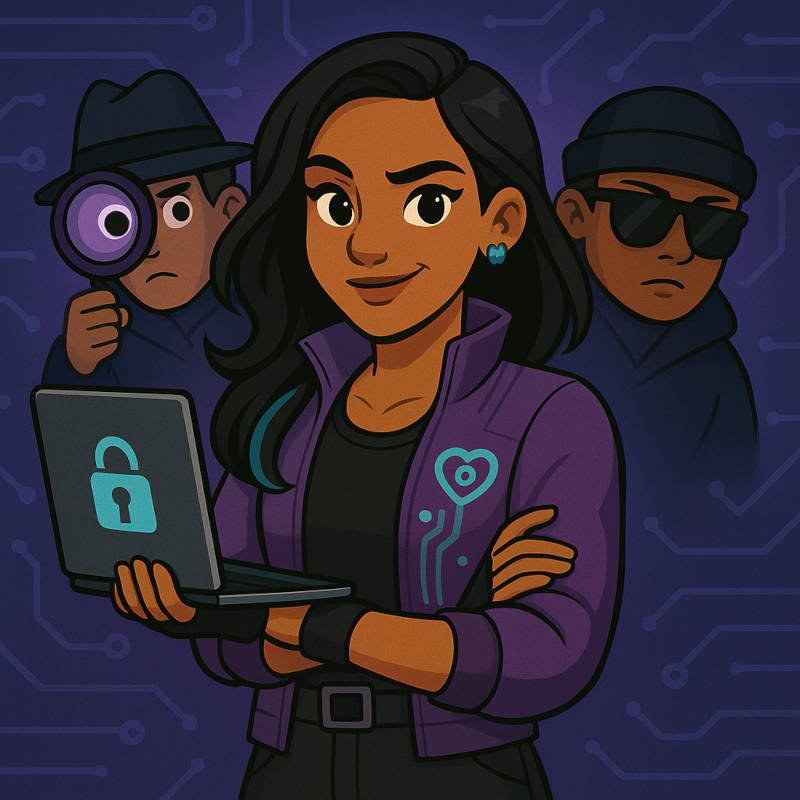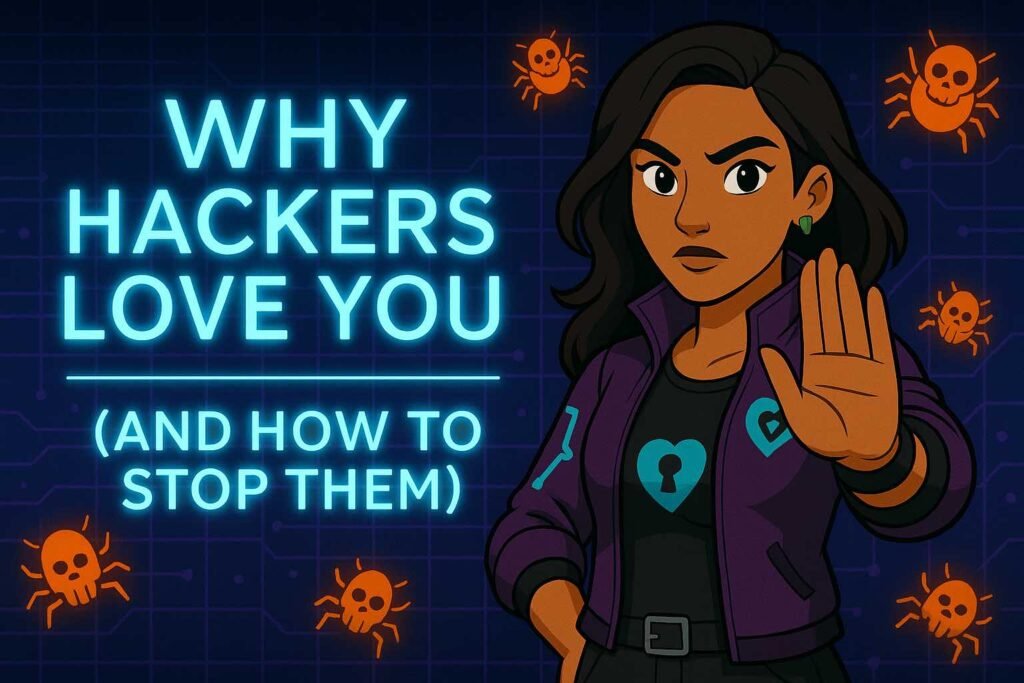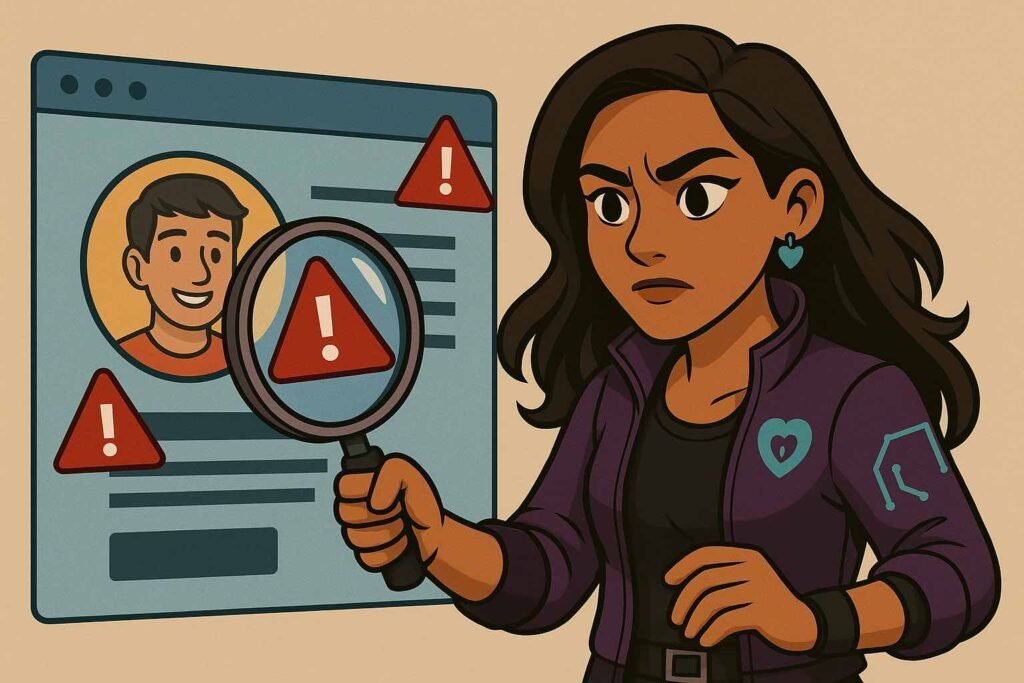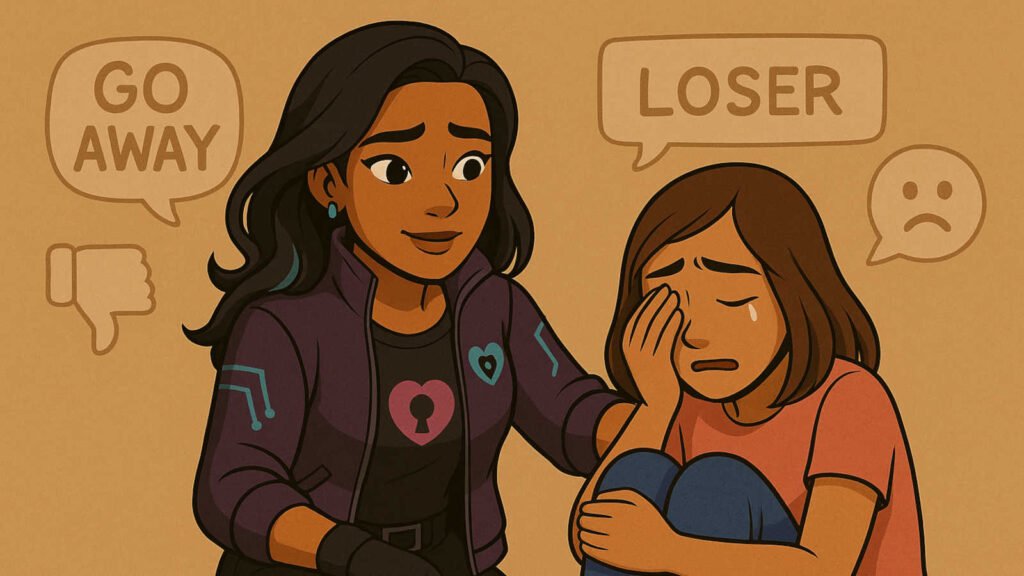You’re juicier than you think—your data is digital gold.
👀 Wait… Hackers Want My Info?
Yep. You don’t have to be rich, famous, or running a business for hackers to want what you’ve got.
In fact, everyday people—like you—are their favorite targets. Why? Because most of us don’t think we’re worth hacking. That makes us… easy.
Hackers love:
- People who reuse the same password everywhere
- Teens who post too much personal info online
- People who click “Allow all” without reading the fine print
- Folks who say “I’ve got nothing to hide”
💰 What’s So Valuable About Your Data?
Let’s break it down. Here’s what cybercriminals can do with your digital life:
- Email addresses → sold on spam lists or used for phishing
- Passwords → tried on every app and account you own
- Photos and videos → used to create fake profiles or blackmail
- Personal info (like your birthday, location, school) → used to answer security questions and break into accounts
- Your device → can be turned into a bot to help attack other people
Even just knowing what time you’re online or where you post from gives them clues.

🧠 But Why Would They Target Me?
Because:
- You’re fast to click
- You’re likely to trust friends and followers
- You probably have money apps or linked cards on your phone
- You don’t think you’re a target… yet
And because it’s not personal. Hackers use bots that scan the internet 24/7, looking for weak points. If your digital doors are unlocked, they’ll come in. No drama, no warning.
🛡️ How to Make Yourself a “Boring” Target
Let’s be real—hackers are lazy. They want fast wins. So if your stuff looks secure, they’ll move on.
Here’s how to make yourself boring (aka safe):
- Use strong, unique passwords (and a password manager)
- Turn on two-factor authentication (especially on email + socials)
- Don’t overshare online (no birthdays, school names, or your full daily routine)
- Check privacy settings on every app you use
- Stop clicking random links (even from friends—verify first!)
🛡️ What’s Two-Factor Authentication?
It’s like having two locks on your door instead of one.
Two-factor authentication (or 2FA) means that even if someone gets your password, they still can’t get in without a second proof that it’s you—like:
- A code sent to your phone
- A fingerprint scan
- A special app like Google Authenticator
It only takes a minute to set up, but it can save your whole digital life.
🧠 Bonus Tip: Practice Digital Awareness
Hackers prey on distractions. The more aware and intentional you are, the safer you’ll be.
So next time you:
- Get a weird DM
- See a “Congrats, you’ve won!” message
- Are about to post a selfie with your address in the background…
Ask yourself: Is this something I’d hand to a stranger on the street?
If not, pause.
🚨 In Case You’ve Already Been Hit…
Don’t panic—happens to the best of us. Do this:
- Change your password immediately
- Enable two-factor authentication
- Log out of all devices
- Run a virus/malware scan
- Let a trusted adult or IT contact know
💬 Real Talk
You don’t have to be scared of hackers—you just have to be one step ahead. With Cysecsis by your side, you’ve got this.
Coming up next: The Top 5 Scams Teens Fall For (And How to Outsmart Them)
Stick with me—because this is just getting started.


